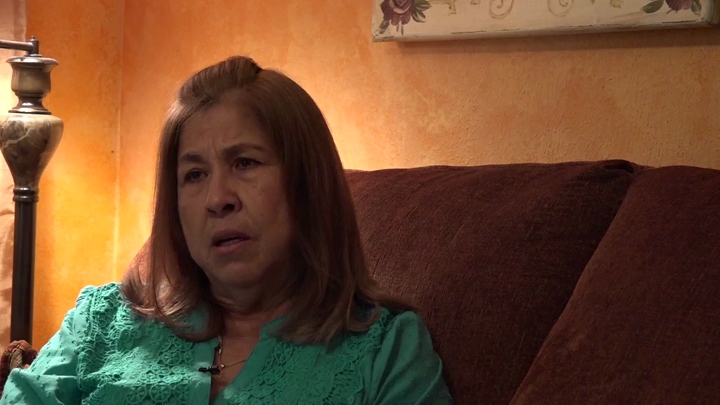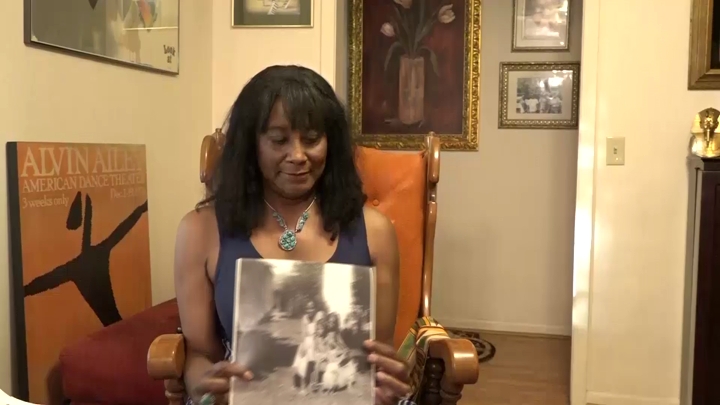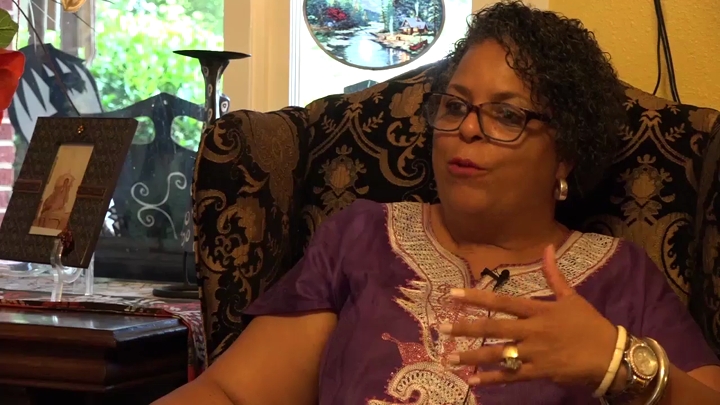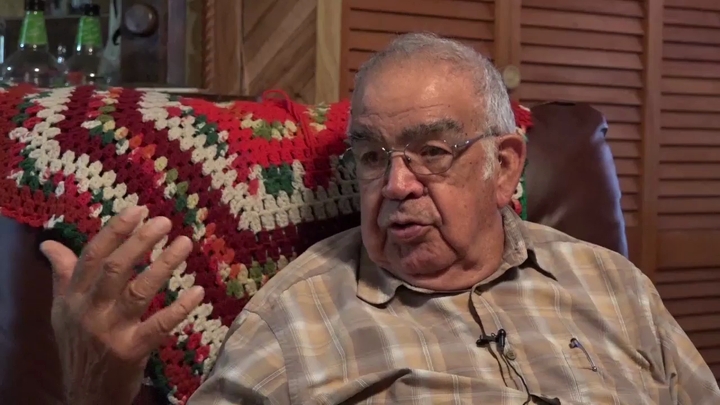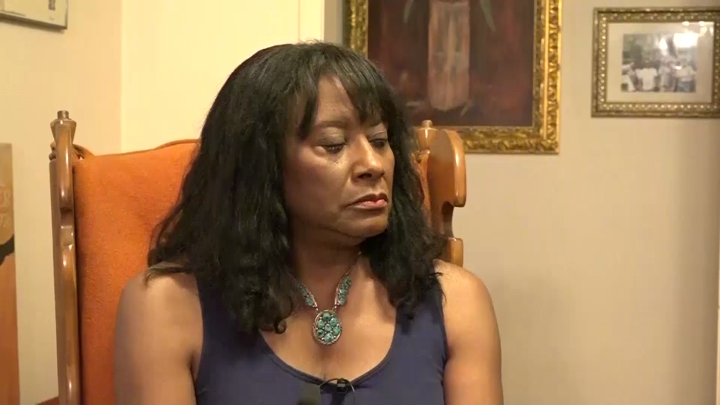Luthuli-Allen / School Experiences and Integration, Part One
sign up or sign in to add/edit transcript
Lituli-Allen: During the time that I was coming up, I was in an area that was about—I was nineteen miles from Jonesboro, Louisiana. The Deacons for Defense were formed in Jonesboro Louisiana and one of my mentors Reverend Frederick Douglass Kirkpatrick was one of the organizers for the Deacons for Defense. The main chapter was in Bogalusa, Louisiana, but the organizing in terms of black men organizing to defend the community with weapons. One of my cousins, actually worked for, he was an older cousin, two years older than me, for Reverend Frederick Douglass Kirkpatrick to raise the consciousness about the need for self-defense. Louisiana was a White Citizens’ Council state. At that time, there were a lot of billboards on the highways that had a picture of Dr. Martin Luther King that had him sitting at a desk. There was an emblem of the White Citizens’ Council and the message was branded with “Dr. Martin Luther King at Communist Training School.” So, I always used to ask my mother, “Why is it that they have Dr. King at this Communist Training School?” and I would guess I was about fifth or sixth grade. She said “Junior, that’s propaganda.” Which meant I had to find out what propaganda was. By the time I got to high school, it was more or less the high tide of the struggle for democratic rights in the Deep South. Naturally, we were swept into the fight for democratic rights. A lot of people equate that with meaning integration, but we were basically equating that with the inequality in resources and inequality in access to opportunities. We never believed that because if we would go to school with white kids that we would get any smarter by being in school with white kids. In 1965, before our senior year, we received the letters from the Justice Department that said we could go to the predominantly white school and so our class had a meeting. We had been together since the time that we were potty-trained together, so all our class said we are going to stay together. So, one hundred percent of us stayed together and none of us went into to the so-called integrated, desegregated environment and we had a great year, our last year in high school. Everybody until today that is still living is very, very glad that we, in fact, did stay together. Now that things have crystallized we can clearly see the impact of the unequal environment that we had because at the time that I was in school, we didn’t have any foreign language courses. When we got books, our books had already been used. We had children pass two to three white school who were bussed to our school. So, the inequality was quite profound, but we had such a camaraderie and solidarity built among us that we overlooked some of the ugliest effects of the inequality. There was this view that previous generation had sowed and that they were making preparations for us to reaper. It was in our mind that we were going to be the first generation that was going to be college education and really have opportunity.
| Interview | Interview with Omowale Luthuli-Allen |
| Subjects | Family › Parenting |
| Family › Childhood Experiences | |
| Religion › Churches | |
| Community Organizations | |
| Community Organizations › Civil Rights Organizations | |
| Education › Secondary Education | |
| Education › Education and Integration | |
| Education › Quality of Instruction | |
| Religion › Church organizations | |
| White Resistance to Civil Rights › White Citizens' Councils | |
| Tags | Rev. Frederick Douglass Kirckpatrick |
| Deacons for Defense | |
| sign up or sign in to add/edit tags | |
| Interview date | 2016-06-17 |
| Interview source | CRBB Summer 2016 |
| Interviewees | Luthuli-Allen, Omawale |
| Locations | Jonesboro, LA |
| Duration | 00:05:47 |
| Citation | "School Experiences and Integration, Part One," from Omawale Luthuli-Allen oral history interview with , June 17, 2016, Civil Rights in Black and Brown Interview Database, https://crbb.tcu.edu/clips/3432/school-experiences-and-integration-pt-1, accessed February 16, 2026 |


